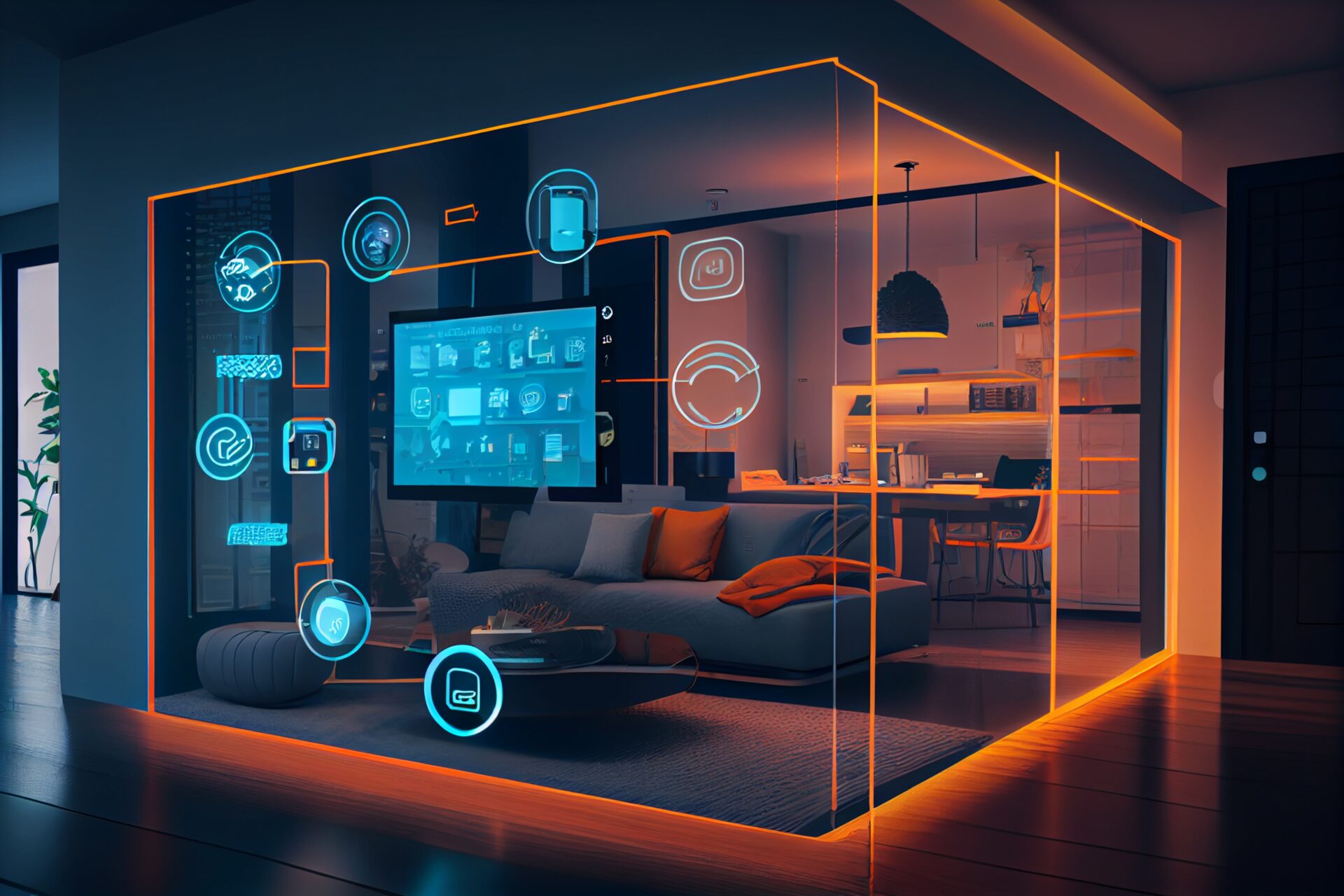Introduction to Smart Homes and AI
Welcome to the future of living, where your home knows you better than you know yourself. The smart home revolution is here, and at its heart lies artificial intelligence (AI). Imagine waking up to the aroma of freshly brewed coffee as curtains gracefully part to let in the morning light—all orchestrated by systems that learn your preferences over time. From controlling your thermostat with a simple voice command to managing security cameras while you’re away, AI is transforming our spaces into intuitive environments.
Gone are the days when technology was just about convenience; it’s now about creating a seamless lifestyle tailored for you. As automation becomes increasingly sophisticated, it promises not only comfort but also efficiency and safety. Join us on this exciting journey through how AI is reshaping our homes and daily routines—one gadget at a time!
The Benefits of a Smart Home
Smart homes offer unparalleled convenience. Imagine controlling your lights, thermostat, and security system with just a voice command or an app on your phone. This level of automation simplifies daily routines.
Energy efficiency is another significant advantage. Smart devices can optimize energy use based on your habits, reducing utility bills while minimizing environmental impact. Your home becomes not only smarter but also greener.
Safety and security are enhanced too. With AI-driven cameras and smart locks, you can monitor your property from anywhere in the world. Alerts notify you of unusual activity, providing peace of mind when you’re away.
Customization plays a vital role as well. You can set preferences for different times of day—adjusting lighting for movie nights or scheduling coffee brewing for early mornings without lifting a finger. The flexibility makes life easier and more enjoyable in countless ways.
How AI Is Changing the Way We Live
AI is weaving itself into the fabric of our daily lives, subtly transforming how we interact with our environment. From voice-activated assistants that respond to simple commands to advanced algorithms predicting our needs, convenience is at the forefront.
Imagine waking up and your coffee maker starts brewing as you step out of bed. That’s AI in action, enhancing mornings with minimal effort. Smart thermostats learn your preferences and adjust temperatures automatically, ensuring comfort while optimizing energy use.
Shopping has also evolved dramatically. Personalized recommendations emerge based on past purchases and browsing habits, making online shopping feel tailored just for you.
In essence, AI streamlines tasks that once consumed valuable time, allowing us to focus on what truly matters—be it family or personal passions. The smart home landscape continues to expand rapidly as innovations roll out nearly every day.
Examples of AI-Driven Home Automation Products
Smart home technology has transformed ordinary products into intelligent companions. Take the Nest Learning Thermostat, for instance. This device learns your habits and adjusts temperatures accordingly, ensuring comfort while saving energy.
Then there’s the Amazon Echo. With Alexa at its core, it controls everything from lights to music with just your voice. Need a recipe? Just ask!
Home security is also evolving. The Ring Video Doorbell provides real-time video feeds and two-way communication, enhancing safety effortlessly.
Don’t forget about smart speakers like Sonos One that adapt sound based on room acoustics—perfect for audiophiles seeking quality tunes without hassle.
Even mundane tasks get an upgrade with robot vacuums like Roomba. These little machines navigate floors independently, freeing up time for more enjoyable activities.
AI-driven automation isn’t just about convenience; it’s shaping a richer living experience in homes everywhere.
The Integration of AI in Everyday Household Tasks
Imagine waking up to the smell of freshly brewed coffee, made just the way you like it. With AI-driven coffee makers, this is now a reality. These machines learn your preferences and adjust brewing times automatically.
Smart refrigerators take it a step further by tracking inventory and suggesting recipes based on what you have at home. They can even remind you when items are about to expire, minimizing waste.
AI also powers robotic vacuum cleaners that navigate your space effortlessly. They map out rooms and optimize cleaning paths without any input from you.
In the kitchen, smart ovens preheat themselves based on your cooking schedule. You can control them remotely through an app while you’re running errands.
From managing grocery lists to automating chores, AI has seamlessly woven itself into our daily routines. Everyday life feels easier and more efficient with these advances in automation technology.
Concerns and Limitations of Smart Homes and AI
As smart homes become more integrated into our lives, concerns about privacy and security intensify. With countless devices collecting data, the risk of hacking looms large. A breach could expose personal information or compromise home safety.
Another limitation is compatibility between different systems. Not all devices communicate seamlessly, creating a frustrating user experience. This fragmentation can hinder the automation process that many seek.
Moreover, reliance on AI for daily tasks raises questions of dependency. Over time, individuals might lose skills they once had, relying entirely on technology to manage their homes.
Cost is also a significant factor. Setting up a fully automated home requires substantial investment in devices and infrastructure not everyone can afford.
There’s an emotional aspect to consider—technology may lack the warmth of human interaction in managing household dynamics. Balancing tech with traditional living remains essential as we navigate this new landscape.
The Future of Smart Homes: Predictions and Potential Developments
The future of smart homes is brimming with possibilities. As AI continues to evolve, we can expect even more seamless integration into our daily lives. Imagine a home that learns your habits and preferences, adjusting the environment automatically.
Smart kitchens could revolutionize meal prep. Picture appliances that not only suggest recipes based on what you have but also order groceries directly from suppliers when stocks run low.
Home security will likely become even more advanced too. Facial recognition cameras and AI-driven monitoring systems may provide an unprecedented level of safety and peace of mind.
Moreover, energy efficiency will take center stage as smart homes optimize power consumption in real-time. Smart grids could allow households to sell excess energy back to the grid during peak times.
With all these advancements on the horizon, living spaces will transform into responsive ecosystems tailored to individual needs.
Embracing the Smart Home Revolution
As we stand at the forefront of the smart home revolution, it’s clear that AI and automation are reshaping our lives in unprecedented ways. Embracing this change means more than just adopting new technology; it’s about enhancing convenience, security, and efficiency in our daily routines.
Imagine waking up to a freshly brewed cup of coffee thanks to your smart coffee maker or having your curtains automatically adjust to let the morning sun filter through while you prepare for your day. These innovations not only simplify tasks but also allow us to focus on what truly matters—spending time with loved ones or pursuing personal interests.
With each advancement in tech, we’re witnessing how these tools can lead to better energy management and improved safety within our homes. Smart thermostats learn our habits for optimal heating and cooling, while AI-driven security systems keep an eye on things when we’re away.
However, as we adapt to this exciting era of automation, it’s essential to remain informed about potential concerns surrounding privacy and data security. Smart devices continuously collect information which can be sensitive; staying educated will help us navigate these challenges effectively.
The future holds immense possibilities as technology continues its rapid evolution. We can expect even more seamless integration of AI into various aspects of home life. From health monitoring solutions that support well-being to advanced entertainment systems responding intuitively to our preferences—the journey has only just begun.
Embracing the smart home revolution offers an invitation—to innovate how we live and interact with our environment while unlocking endless opportunities for enhancement. As technology progresses, let’s welcome these changes with open arms and curiosity about all they can bring into our homes.














